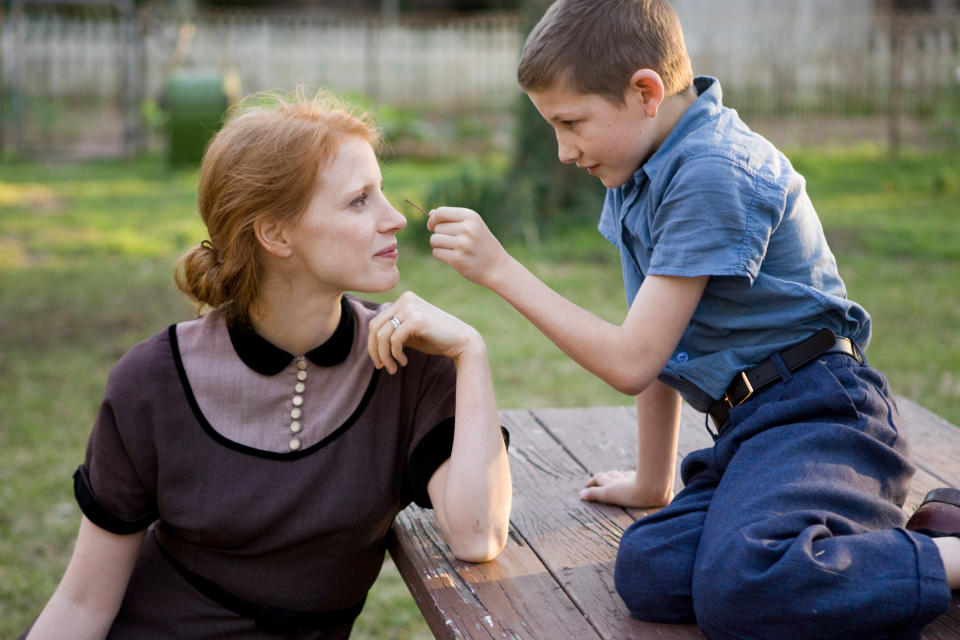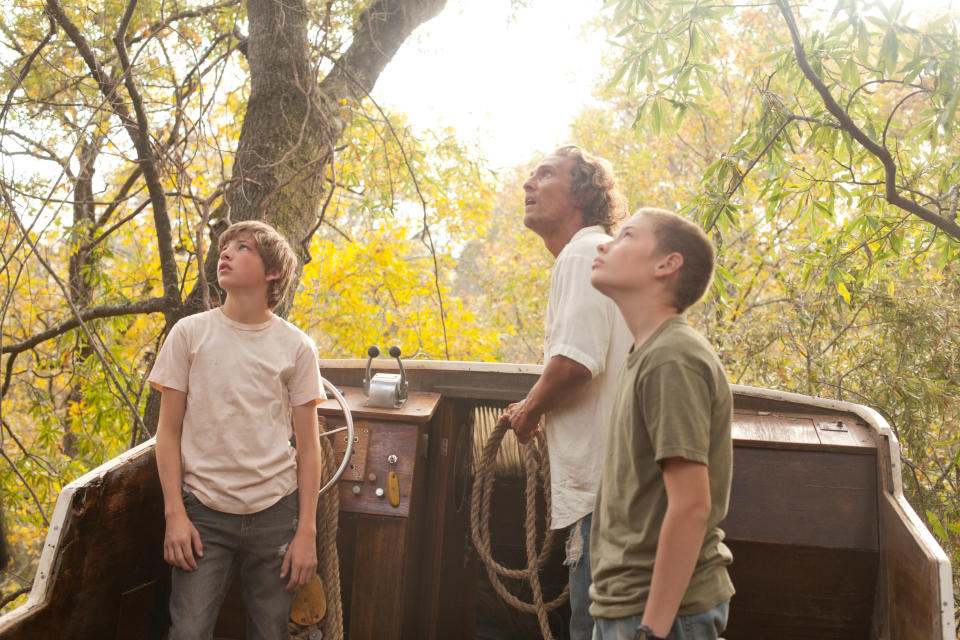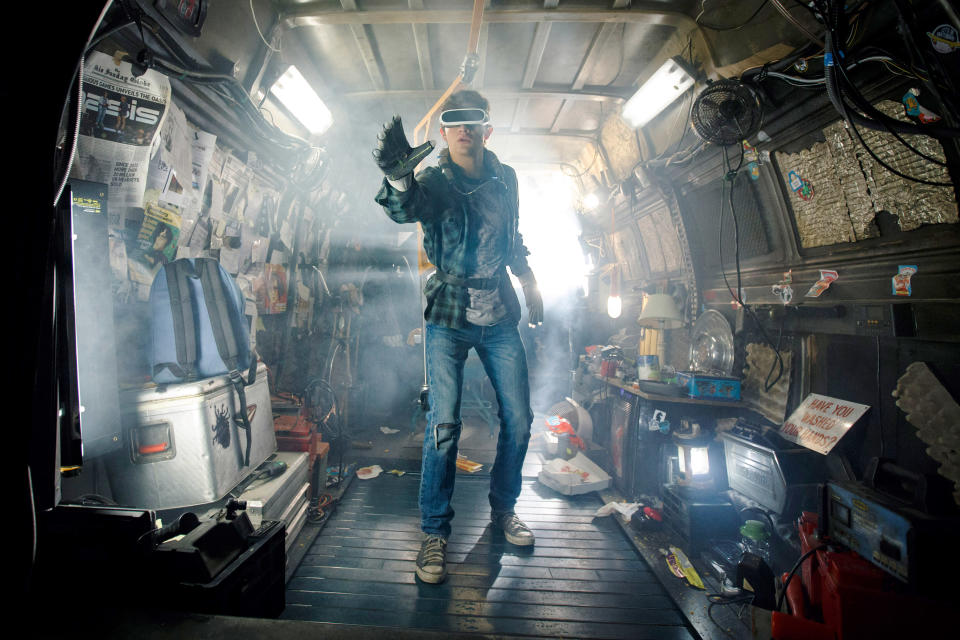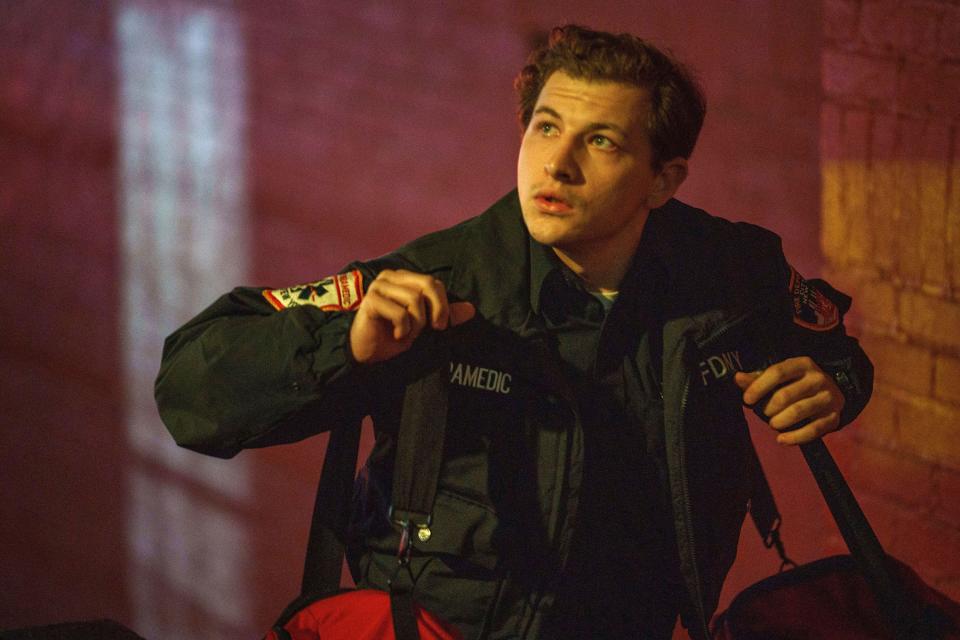Tye Sheridan’s Latest Film Was the ‘Most Difficult Project’ of His Career — He Wants More Like It

When Tye Sheridan was just 11 years old, something crazy happened: Terrence Malick came looking for him.
Specifically, the beloved American auteur wanted to cast a trio of young brothers for his “The Tree of Life,” co-starring Brad Pitt and Jessica Chastain. The vast majority of kids Malick and his team saw were — like Texas native Sheridan — totally green to this acting thing.
More from IndieWire
Sixteen years later, Sheridan isn’t green anymore. The actor is only continuing to build out his resume, adding producing into the mix with his most recent feature film, Jean-Stéphane Sauvaire’s “Asphalt City,” which debuted at the 2023 Cannes Film Festival under the title “Black Flies.”
Still, ask Sheridan about where his initial love of moviemaking came from, and it’s like he’s right back on Malick’s set. “I was randomly cast in the film. They recruited 10,000 kids in the state of Texas to come and audition. I went on a whim, because my parents said, ‘Oh, why don’t you go? You can always tell people you got to audition for a film one time,’” Sheridan told IndieWire. “And I said, ‘Yeah, that sounds cool.’ So I went.”
In the years since his debut, Sheridan has done a little bit of everything: worked with a slew of American auteurs (Jeff Nichols and David Gordon Green, Steven Spielberg and Paul Schrader), been a bonafide superhero, turned to TV, and even started his own AI-powered production shingle (more on that to come on IndieWire later this week). But that first experience — on a Malick film, no less! — has stuck with him, even guiding him into the next stage of his career.
“That first day on a film set, acting was just as new to me as everything else was,” he said. “I saw all these people and I was so shocked by how many people it took to make a film. I was just a naturally curious kid, and I wanted to know what everyone was doing, what their role was, why, who they worked with, and how it all worked. I was always asking questions about how the filmmaking process works, and that never really stopped. As you continue working on films, and I’ve been lucky enough to work with some of the greatest living filmmakers out there, that curiosity grows and builds. You want to take all of that and apply it to your own projects. It’s so much better to be creating your own opportunities than to be waiting for the phone to ring.”

Sheridan, who previously produced both the short film “Mama Never Knew” and feature “The Night Clerk,” has always known he wants to do it all. He’s been writing things since he was about seven (“just for fun,” he said with a smile), decided he wanted to act as a career around age 15, and by age 17 was pretty sure directing was for him. The “do you want to direct?” question is an obvious one for a burgeoning multi-hyphenate like Sheridan, and when this writer asked him about those ambitions, he didn’t hesitate: “For sure. Yes. Yeah.”
“Since I was 17 years old, I’ve known I wanted to make my own films, maybe even earlier than that,” he said. “It was working with Terry Malick and then Jeff Nichols and then David Gordon Green. If it weren’t for those three guys, I don’t know if I would’ve ended up pursuing this as a career. They were the guys that really inspired me more than anyone.”
After his turn in “The Tree of Life,” Sheridan next starred in Nichols’ “Mud” in 2012 and Green’s “Joe” the following year. His first three filmmakers shaped not just Sheridan’s taste, but the possibilities he saw in the medium.
“Specifically with Jeff and David, they were making these movies that took place in the South and captured the authentic nature of the South and the world that I grew up in,” he said. “They were telling me stories that I could relate to as a 15-year-old kid coming from the middle of nowhere in Texas. And until then, I hadn’t found that in cinema. That was really where my love for cinema started.”

Those films took him (literally) far: Nichols’ “Mud” premiered at Cannes in 2012. Sheridan was 16. (The next year, Green’s “Joe” premiered at Venice, not too shabby.) He’s never forgotten it. “Thousands of people stood up and gave us a 20-minute standing ovation for this little movie we made about these boys on the Mississippi River trying to help a fugitive find love,” he said. “It really showed me the power of story in that moment. From that point on, I knew it was what I wanted to do.”
Inevitably, the actor dipped his toe into more mainstream fare (read: he did the superhero thing). In 2016, he starred in Bryan Singer’s “X-Men: Apocalypse” as Scott Summers (aka Cyclops), a role he revisited in both a “Deadpool 2” cameo and a “Dark Phoenix” supporting turn. Sheridan didn’t approach the work as a comic book fan, though he admired — and still admires — the world of the X-Men.
“I was not a big comic book fan, if I’m being completely honest,” he said. “I like comic books, I just didn’t grow up reading them a ton, so I wasn’t super immersed in that world. Of the films that I had seen, I thought the X-Men franchise were kind of the best films out there, and most definitely had the best cast. So, if there was one to go and do, it felt like that was the world to jump into. It was definitely exciting at that time. You’re 18 years old, you’re doing a studio project, not for the first time, but a film at that scale for the first time. And working with that cast, with Michael [Fassbender] and James [McAvoy] and Jen [Lawrence] and Nick [Hoult] and the whole gang was really cool.”
Yes, Sheridan is well aware of the current feeling of superhero fatigue, though he’s loath to say he’s forever done with those kinds of stories. He pointed to projects like the TV series “X-Men ‘97” and the “Spider-Verse” films as proof there’s still stuff worth mining out there.
“We’ve become so inundated with Marvel now,” he said. “I also think that, a lot of times, the stories aren’t necessarily super original or feel very unique. It all kind of feels cut from the same cloth a little bit. I think people are starting to catch on to that. Who knows what’s going to happen? And I’ll never say never, but in 10, 20 years, who knows? Maybe it’ll be a refreshing new scene.”
Fortunately, over the course of his career, Sheridan’s tastes have mostly run toward more adult fare. Something like “Asphalt City” — a gritty, hard-bitten film that includes plenty of violence, gore, and even some explicit sex scenes — feels like a natural progression for someone looking to show off their range.

“The central question [for me] is: What is the film and why is it exciting […] and meaningful to you at this place in your life?” he said. “That’s a big one for me in terms of how I make decisions on projects. I want to find something that feels personal to the phase that I’m at in my life.”
Sheridan laughed. “For this [‘Asphalt City’] character specifically, I think the personal connection is that I’m in my 20s, and I don’t know what I’m doing,” he said. “I don’t think anybody ever really knows what they’re doing, but I think you especially feel that in your 20s and you’re trying to navigate this world of chaos.” (Sheridan is 27 now, and despite his claims to the contrary, very much seems to know what he’s doing and how best to navigate it.)
The “world of chaos” of “Asphalt City”? Oh, he’s not kidding. “It was probably the most difficult project I’ve ever worked on, for me personally,” Sheridan said. He seems to have loved that.
The film, based on Shannon Burke’s 2008 novel “Black Flies,” follows young paramedic Ollie Cross (Sheridan) as he attempts to survive the brutal world of saving lives in New York City. He’s helped — and hindered — by the influence of his partner, world-weary Gene Rutkovsky (Sean Penn, who also starred in “The Tree of Life”). “Asphalt City” opens during a particularly fraught call, with the untested Ollie thrown into a bloody milieu he can’t quite parse. It doesn’t really let up from there.
“That was always the intention with the movie, just to kind of be in-your-face and hyperreal,” Sheridan said. “That’s an ode to Jean-Stéphane and his style of filmmaking, his movies like ‘Johnny Mad Dog’ or ‘A Prayer Before Dawn.’ They’re highly intense, highly visceral, hyperreal, so real that you’re asking, ‘How the hell did he do this? How did they capture this?’ I love that, when you can make a movie, and there are certain aspects of the film where people are asking, ‘How did they actually do that?’”

When it came to preparing for the film, Sheridan doesn’t talk about “playing a medic,” but of “becoming a medic.” The film shot in New York City in May 2022, but Sheridan started his research early. “I was taking trips to New York since 2018 when we were first trying to put this movie together, and I was doing ride-alongs with medics on and off over the years,” he said.
In the two months leading up to the shoot, Sheridan started doing ride-alongs three or four days a week. “So Friday, Saturday nights, usually 12 hours ride-alongs, and then sometimes Tuesdays, sometimes Wednesdays,” he said. “Outside of that, we’re just prepping the movie and doing a lot of training in a classroom environment. It was something Sean and I were going through together, learning how to do CPR, learning how to give people IVs, and learning how to assess patients. It was very intense, but we got so close to the process. You can see everything [on the screen] and we knew that, so it had to look like we were real medics and that we were actually treating these patients.”
Intensity and Sean Penn? Sounds like a natural fit. “Sean is an intense guy in general, he’s very engaged in anything that he’s doing,” Sheridan said of his co-star. “That not only helped me, but it helped our crew, it helped everyone that was surrounding the project because he was super professional and he was very engaged, and everyone needed to be dialed in. This movie was shot in 23 days, so we didn’t really have time to not be dialed in.”
To decompress during the shoot, Sheridan said he “heavily relied” on a nightly journaling process to work through the day. The film’s content was as difficult as the elements involved in shooting on location in New York City. This was tough for an actor and very tough for a producer.
“New York is a very difficult place to make a movie in, especially when you don’t have a lot of budget,” Sheridan said. “It’s not very forgiving, but the cool thing is that a lot of people don’t give a shit if you’re shooting a movie in New York. It’s a blessing and a curse because you can go and sometimes you can steal [shots]. You don’t get a lot of bang for your buck in New York in terms of the permitting process and the bureaucracy around filmmaking. Every day felt like a battle with the world and with the clock and with the city.”
Sheridan is smiling as he says all of this. Even nearly two years out from the production of “Asphalt City,” he remembers how it felt, and he loves it. Hell, even 12 years out from that Cannes premiere of “Mud,” and he still remembers how that felt, how much he loved it, and how it’s continuing to guide his work now.
“I’m just trying to capture the magic,” he said of his “Mud” experience, then lightly rephrased. “I just hope I can try to capture the magic, whether that’s through acting or producing or writing or directing. I think it’s really rare, but when a movie does achieve that thing, it’s complete, utter magic and it’s super addicting.”
Roadside Attractions and Vertical will release “Asphalt City” in theaters on Friday, March 29.
Best of IndieWire
Sign up for Indiewire's Newsletter. For the latest news, follow us on Facebook, Twitter, and Instagram.

 Yahoo News
Yahoo News 
